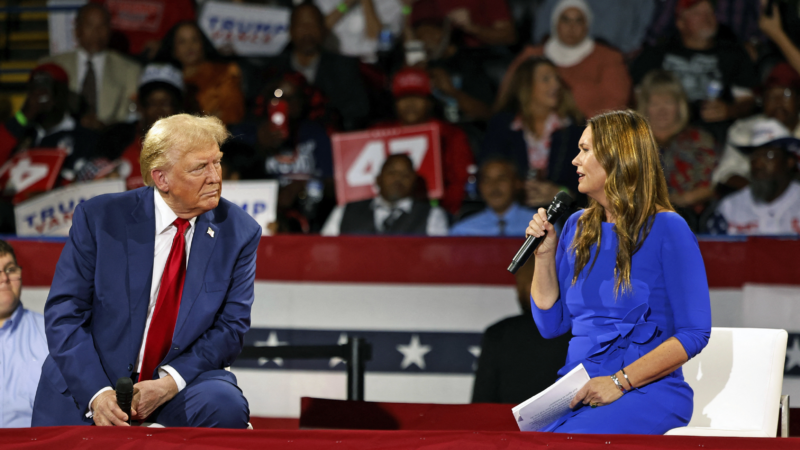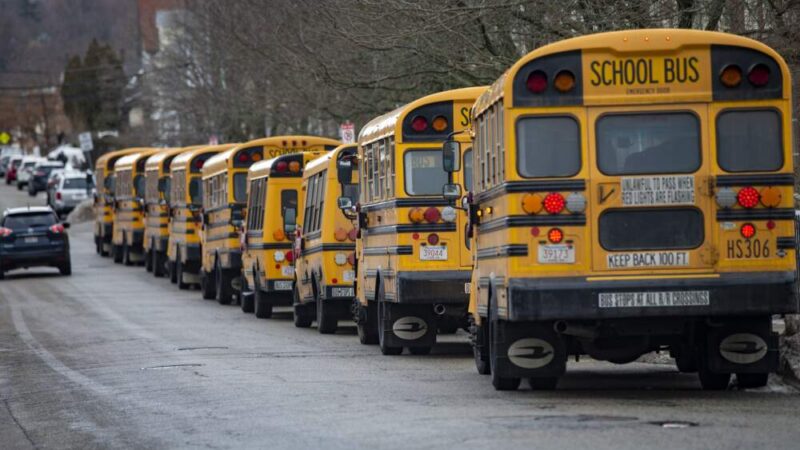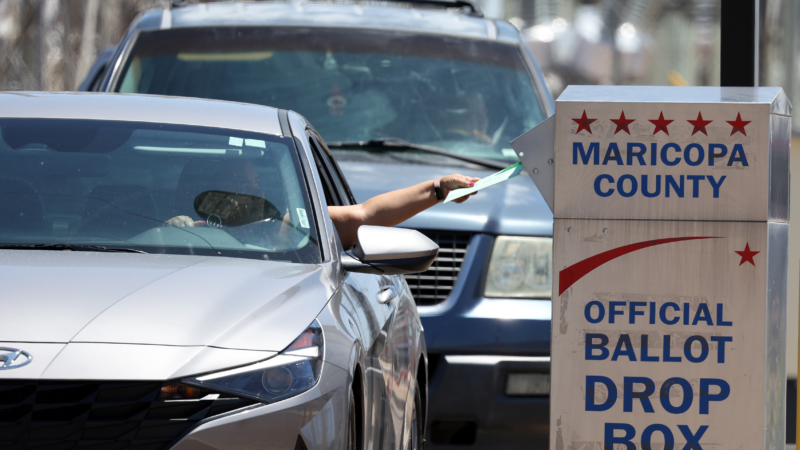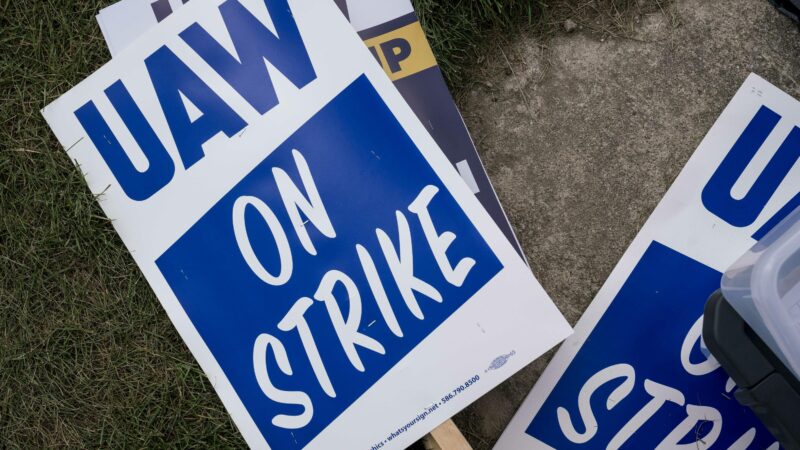For shuttle-weary riders, a restored Red Line can’t come soon enough
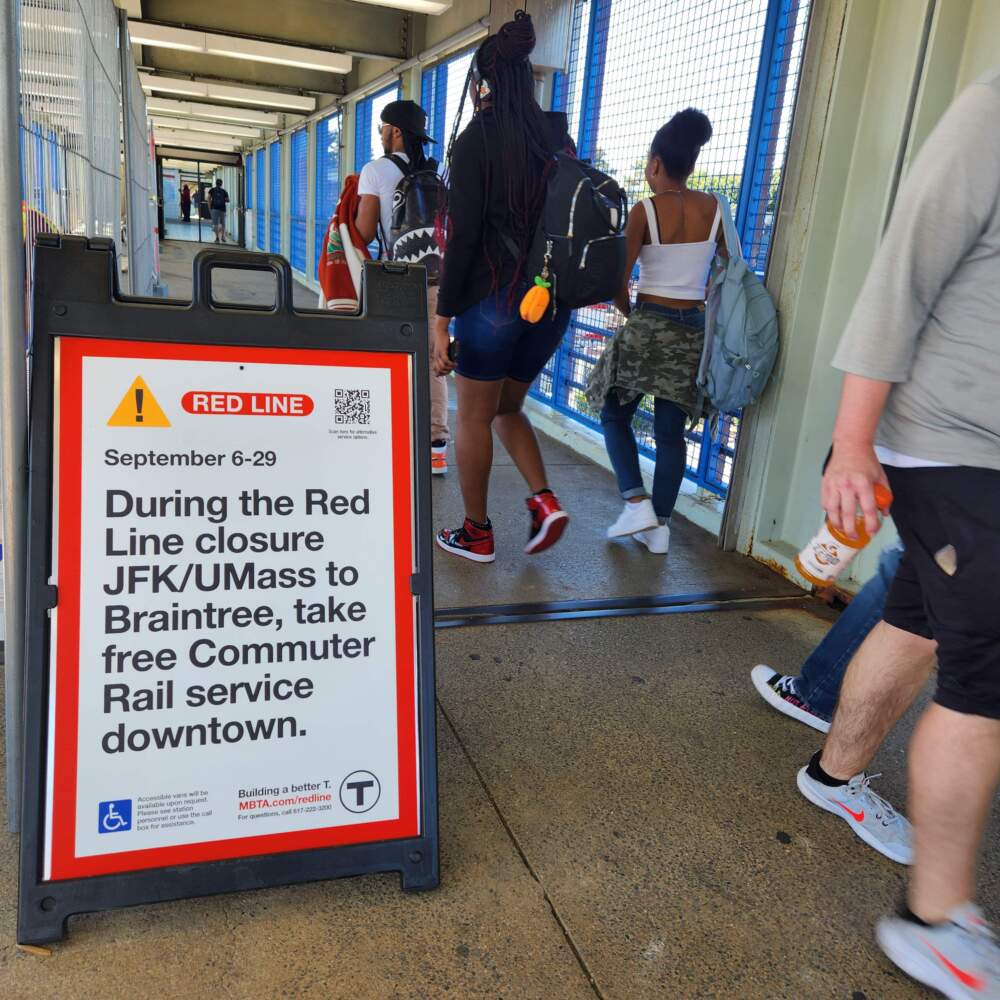
For many MBTA Red Line commuters, navigating the work-arounds during the Braintree branch shutdown is confusing at best.
Charles Conley of South Weymouth puzzled his way through it over the weekend on his way to and from work in the Back Bay. He said he got off an outbound Ashmont Red Line train at JFK/Umass, thinking he’d be able to catch a shuttle bus there to Braintree. After a long wait, a fellow passenger told him he’d have to get to Ashmont — four stops away — to find the Braintree-bound shuttle.
One night, he tried getting a shuttle from South Station to Braintree, but missed it because he thought shuttles were running on the same schedule as the Red Line trains. Wrong again.
“That was a little confusing as well, so I guess you just have to check the [shuttle] schedule each day to see how they’re running,” Conley said.
Red Line service from JFK/UMass to Braintree was suspended Sept. 6 as part of the T’s track improvement program. The transit authority says crews will repair 18 miles of track over 24 days. It’s the longest planned shutdown of the year.
To help riders get around during the closure, the T is running frequent shuttle buses. It has also made commuter rail service free of charge on the Kingston, Middleborough and Greenbush lines, which run parallel to the Braintree Red Line. But during two weekends of the closure, even commuter rail service will be replaced with shuttle buses.
Dorchester resident Lucas De Lima said travel time to his Braintree job has doubled during the Red Line closure.
“I have to get either the Purple Line [commuter rail] or the shuttle. It’s taking two hours to get to my job,” he said.
He has asked his boss to consider letting him work remotely because his commute is so arduous.
“It does affect my productivity,” De Lima said.
On the Braintree platform Thursday morning, UMass student Kimie Chanlatte waited for an inbound commuter rail train.
“I kind of miss the Red Line,” she said.
The schedule was familiar and she felt the T was a “quick and easy” transit option. Taking the commuter rail instead over the last week has been hard.
“It’s always late,” she said. And those delays have made her “super late” to a few classes.
The T has encouraged riders making use of the Braintree branch alternatives to plan for at least an additional 40 minutes of travel time during the closure. Transit authority officials have acknowledged the shutdown is inconvenient, but said it’s necessary.
General manager Phil Eng last month said the work will allow Red Line trains to run above 40 miles per hour. Twenty-two speed restricted areas will be addressed during the closure, and “That branch will be restriction free,” Eng said, making travel much faster. The work is slated to be done Sept. 29.
The promise of a better Braintree branch is making the inconvenience of the closure easier for some commuters to stomach. Conley, the rider from South Weymouth, said he doesn’t mind “biting the bullet” for a few weeks if that means the speed restrictions will be eliminated.
Kristin Braithwaite of Braintree said she swore off the Red Line after missing “many, many meetings” due to slow and unreliable service. But now, she said, “The closure is exciting to me, like maybe we can get functioning public transportation.”
She said she’ll give the Red Line a fresh shot when it reopens Sept. 30.
This article was originally published on WBUR.org.
Trump held his first campaign event since the apparent assassination attempt
Trump’s town hall in Michigan was shorter than his typical campaign rally, but he used the event to discuss everything from the failed attempts on his life to a promise to boost the auto industry.
Hiccups from new bus tracker app and late student registrations behind bus delays, Boston leaders say
Mayor Michelle Wu says she's confident that the system will consistently improve once new student registrations slow down after a late summer surge and drivers work through new tracking technology glitches.
A records flaw could block thousands in Arizona from voting in state and local races
Arizona officials say the flaw could disqualify nearly 100,000 people from voting in non-federal races. At issue is proof of citizenship records required by the state to participate in such elections.
A man’s therapist challenged him to a race. He said it was a spark of life
On this week's "My Unsung Hero:" In 2014, Wil was being treated for major depression at an inpatient mental health program. One day, his therapist issued a challenge that renewed his sense of purpose.
The body transforms in remarkable ways during pregnancy. So does the brain
NPR's Ari Shapiro talks with Emily Jacobs of UC Santa Barbara about how pregnancy reshapes the brain, the subject of a study out this week in the journal Nature Neuroscience.
A year after the strike is the UAW still winning?
A year ago at this time, members of the United Auto Workers Union were feeling powerful and optimistic. The group's new President Shawn Fain had called a historic strike. For the first time, the Union walked out on ALL three big automakers. It was a bold move that by most measures worked. It ultimately brought Ford, GM and Stellantis much closer to the union's demands for historic raises and new job protections. The strike's success had people predicting a bigger and more powerful union.A year on the union is still staring down some major challenges. For sponsor-free episodes of Consider This, sign up for Consider This+ via Apple Podcasts or at plus.npr.org.Email us at [email protected].

